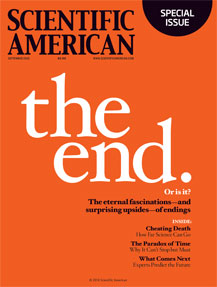The ancient art of cherry picking passages from the Bible to support this or that argument has found new life in recent decades as conservatives claim Jesus as their political ally and in the past year with the Tea Party movement invoking Christ’s conservativism. What Would Jesus Do? (WWJD?) has morphed into Who Would Jesus Vote For? (WWJVF?) Was Jesus a conservative? I don’t think so, but the entire enterprise of politicizing historical figures with modern labels is fraught with fallacy.
Employing modern political terms such as “liberal” and “conservative” to someone who live 2,000 years ago is an absurd game to play because those terms as they are used today do not even apply to people who lived a scant few centuries ago. The original meaning of “liberal,” for example, was what we would today call a “classical liberal,” or someone who believes in laissez faire capitalism and small government. Followers of Adam Smith were liberals, but today are called classical liberals, or conservatives, because they want to conserve the political and economic principles of classical Enlightenment thought. Those who are vehemently opposed to these conservative principles are sometimes today called progressives, who want to progress beyond—instead of conserving—classical liberalism, and their type specimen is Franklin D. Roosevelt, who originally had the support of pro-laissez faire capitalists until he launched the New Deal. One of FDR’s ideological descendents was Bill Clinton, who turned out to be one of the strongest Democratic proponents of free markets in history, which makes him, what? A conservatively classical progressive liberal? You can see how odious such label making becomes even for modern figures.
Jesus was, for the most part, apolitical. There were a number of political factions in his time, yet there is no evidence that he joined or even endorsed any of them. He emphasized the “Kingdom of God” over the kingdom of man, and heaven over earth, and his central message was to love God and to love one another. When Jesus was asked, “Teacher, which is the great commandment in the Law?” he replied, “You shall love the Lord your God with all your heart and with all your soul and with all your mind. This is the great and first commandment. And a second is like it: You shall love your neighbor as yourself. On these two commandments depend all the Law and the Prophets.” (Matthew 22:34–40). In the next chapter in Matthew (23:9–12) Jesus punctuated the point by comparing earthly fathers to the heavenly father: “And call no man your father on earth, for you have one Father, who is in heaven. Neither be called instructors, for you have one instructor, the Christ. The greatest among you shall be your servant. Whoever exalts himself will be humbled, and whoever humbles himself will be exalted.”
Lacking clear political leanings we have to examine the moral teachings of Jesus to see if they more closely fit the moral principles of liberals or conservatives. As I read the record, Jesus sounds like a liberal when he admonishes us to turn the other cheek and practice forgiveness, not to judge lest ye be judged, to show great compassion for the poor, and especially when he admonishes the money changers and tells his followers to give up their belongings, abandon their families, and follow his religious movement. Remember, it was Jesus who said, “it is easier for a camel to go through the eye of a needle than for a rich man to enter the kingdom of God.”
And let’s not forget the Beatitudes from the sermon on the mount (Matthew 5: 3-9), which do more closely echo the sentiments of liberals instead of conservatives:
“Blessed are the poor in spirit, for theirs is the kingdom of heaven.”
“Blessed are those who mourn, for they shall be comforted.”
“Blessed are the meek, for they shall inherit the earth.”
“Blessed are those who hunger and thirst for righteousness, for they shall be satisfied.”
“Blessed are the merciful, for they shall receive mercy.”
“Blessed are the pure in heart, for they shall see God.”
“Blessed are the peacemakers, for they shall be called sons of God.”
Matthew 7: 1–5 is the classic statement of liberal tolerance:
Judge not, that ye be not judged. For with what judgment ye judge, ye shall be judged: and with what measure ye mete, it shall be measured to you again. And why beholdest thou the mote that is in thy brother’s eye, but considerest not the beam that is in thine own eye? Or how wilt thou say to thy brother, Let me pull out the mote out of thine eye; and, behold, a beam is in thine own eye? Thou hypocrite, first cast out the beam out of thine own eye; and then shalt thou see clearly to cast out the mote out of thy brother’s eye.
Indeed, would any red-blooded, gun-totting, Hummer-driving, hard-drinking, Bible-totting conservative today saying anything like this? (Matthes 5:43-44): “You have heard that it was said, ‘You shall love your neighbor and hate your enemy.’ But I say to you, Love your enemies and pray for those who persecute you….”
Even on the current hot-button issue driving the Tea Party train—taxes—when asked if it was proper to pay taxes, Jesus famously said (Matthew 22:21): “Render therefore unto Caesar the things which are Caesar’s; and unto God the things that are God’s.”
Of course, I’m cherry picking passages myself here, but I found the process much more conducive to fitting Jesus into left-leaning politics than into the right. I suppose the following passage from the Messiah (Matthew 5:27-30) might be construed as Jesus’s expression of conservative values, but I’m not sure anyone in their right mind would endorse such a moral principle:
You have heard that it was said to those of old, ‘You shall not commit adultery.’ But I say to you that whoever looks at a woman to lust for her has already committed adultery with her in his heart. If your right eye causes you to sin, pluck it out and cast it from you; for it is more profitable for you that one of your members perish, than for your whole body to be cast into hell. And if your right hand causes you to sin, cut it off and cast it from you; for it is more profitable for you that one of your members perish, than for your whole body to be cast into hell.
Speaking of the 7th commandment, I found one webpage dedicated to this matter of the Messiah’s politics in which the author wrote:
At times, Jesus blended His Liberal and Conservative sides in perfect balance. One example was when He asked the woman accused of adultery, “Where are your accusers? Has no one condemned you?”, and the woman answered, “No one, Lord.” Jesus told her, “Neither do I condemn you; from now on, sin no more.” The Liberal Jesus did not condemn the woman, but the Conservative Jesus called her behavior “sin”, which she needed to stop.
So … are we to infer from this interpretation that liberals would not call adultery a sin that should be avoided, and if committed need not be stopped? All married liberals reading this column raise your hands if you think an act of adultery on the part of your spouse is acceptable. That’s what I thought. In point of fact, adultery is a sin because it deeply injures a loved one, it breaks the bonds of trust so essential to the deepest of all human relations, and it leads to the breakdown of families. And you don’t need the Bible to understand this simple fact. Adultery as a sin is an evolved characteristic of our species.
We evolved as pair-bonded primates for whom monogamy, or at least serial monogamy (a sequence of monogamous marriages), is the norm. Adultery is a violation of a monogamous relationship and there is copious scientific data (and loads of anecdotal examples) showing how destructive adulterous behavior is to a monogamous relationship. In fact, one of the reasons that serial monogamy (and not just monogamy) best describes the mating behavior of our species is that adultery typically destroys a relationship, forcing couples to split up and start over with someone new. Thus, adultery is immoral because of its destructive consequences no matter what God or the patriarchs said about it. And evolutionary theory provides a deeper reason for adultery’s immoral nature that is transcendent because it belongs to the species. If there is a God, and if He does condemn adultery as an immoral act, it is because evolution made it immoral.
This post originally appeared at TRUE/SLANT.




